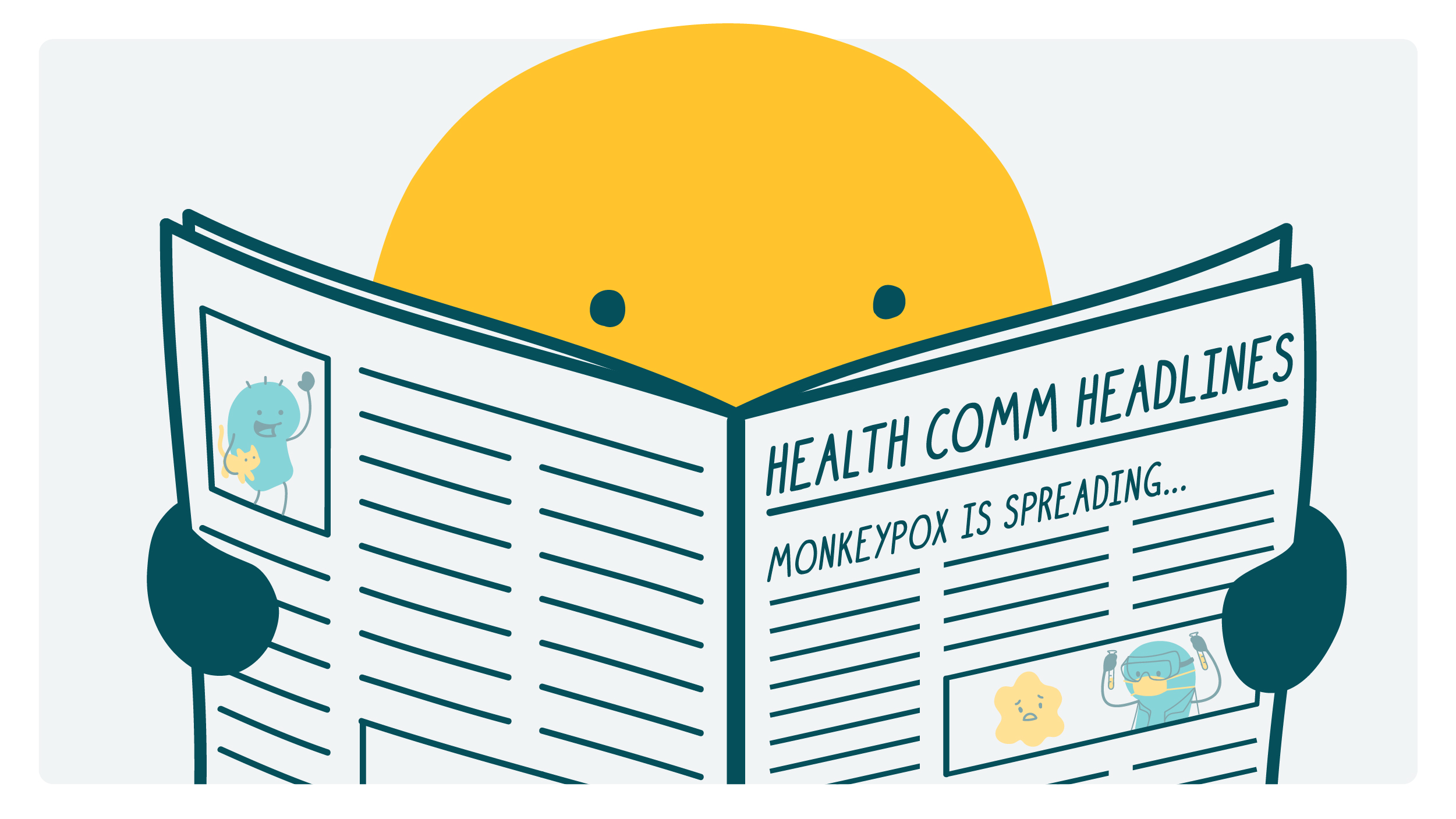
Though it’s almost impossible to process that there’s yet another virus spreading around the world, here we are. You’ve doubtless been keeping an eye on monkeypox (or MPX) — and well, dear readers, there’s a lot to unpack.
Any disease outbreak comes with specific communication needs, but there are some extra layers here: namely, that lots of the current cases appear to be in men who have sex with men. Trans women and nonbinary folks may also be at higher risk. But the virus hasn’t necessarily behaved this way historically, and anyone can get monkeypox by being in close contact with someone who has it. The resulting challenge — how to get the right info to the right people in the right way given what we know now about who’s most at risk — strikes right at the heart of our health comm charge.
So this week, we’re bringing you some reads (and listens) on the monkeypox outbreak and its potential implications, communication challenges arising from the virus’s unusual behavior, and even the words we use to talk about it. Read on for more — and let us know if you have follow-up comments. This is a very interesting and important space, and we’ll be watching closely.
- Monkeypox Is Not a Public Health Emergency of International Concern, But Perhaps It Should Be (Your Local Epidemiologist)
You know we ❤️ us some YLE! In this issue, YLE (aka Dr. Jetelina) covers WHO’s decision last month not to declare monkeypox a Public Health Emergency of International Concern (PHEIC). In doing so, she shares some of the most up-to-date science about monkeypox — touching on topics like transmission modes and vaccine supply. As always, you can count on YLE to provide the data behind the headlines, and she raises some important questions about PHEIC classification and public health preparedness. (Quick update since we wrote this post on July 6: It sounds like WHO may be rethinking this decision. Stay tuned!)
- How the Hard Lessons of the AIDS Crisis Are Shaping the Response to the Monkeypox Outbreak (STAT)
Many people have drawn comparisons between the early HIV/AIDS crisis and the current monkeypox outbreak — this because a lot of the cases are in men and trans women who have sex with men. And there certainly are some relevant lessons learned. The author asks the million-dollar question right at the top of the piece: “How do you get tools and information about the disease to those who need it without wrongly implying that only that group is at risk, or publicly associating an unfamiliar disease with an already stigmatized community?” It’s a really, really good question.
- Warning Vulnerable Populations About Monkeypox Without Stigmatizing Them (NPR)
Listen to this recent edition of Consider This (or read the transcript) for a deep dive into the monkeypox outbreak and why stigma in public health is so problematic. It also touches on restoring credibility and trust in public health officials after the COVID-19 pandemic. As Dr. Boghuma K. Titanji of Emory University says, “When we … make the foundation of [our] messaging … humility, in the sense that not every question around a particular disease situation is resolved and that we may not have all the answers — I think that that vulnerability … restores some of that trust because it makes the public health officials come across as being human.” YES!
- ‘Discriminatory and Stigmatizing’: Scientists Push to Rename Monkeypox Viruses (STAT)
This piece looks at efforts to retire the current terms used to distinguish between monkeypox viruses — which are specific geographic locations in Africa. (If this reminds you of some people’s inclination to call the coronavirus “the Wuhan virus,” you’re on the right track.) It goes on to explain an additional change that some folks in the scientific community are proposing to the name itself. As health comm professionals, we all know how much power lies in the words and labels we use to talk about public health issues. We ❤️ the discussion of how disease terminology can both compromise accuracy and perpetuate harmful stigma.
Browse recent posts